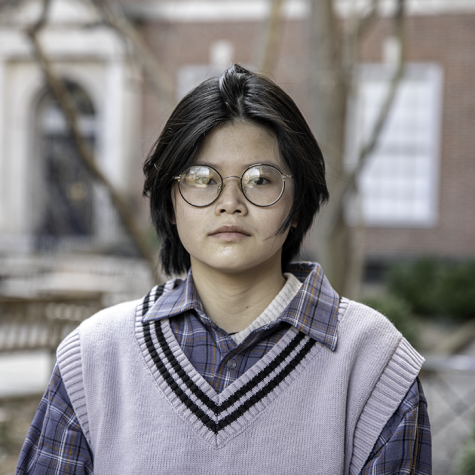“It doesn’t matter where you’re from. All that matters is where you’re going.” This is one of the first sentences Daniel speaks after assuming the identity of Father Tomasz in Jan Komasa’s “Corpus Christi,” and summarizes the thrust of his story as an ex-convict who disguises himself as a priest to avoid paroled labor at a sawmill. Daniel, as Father Tomasz, acquaints himself with the structure of the town, transforming from a naïve young man playing at faith into a bona fide man of God in his own personal journey. While the film, nominated for Best International Film at the 92nd Academy Awards, is not a thriller, it is an intensely vigorous investigation of what true faith really means without pages of scripture or layers of uniform to hide behind.
The core of “Corpus Christi” lies in Bartosz Bielenia’s performance. His enthralling portrayal as Daniel demonstrates a capability for wide emotional ranges. His striking, almost hypnotizing, eyes can hold such electrifying, unpredictable violence in some scenes, while delivering poignant self-reflection with equally profound expression in others. Bielenia lifts up the entire cast with an energy that spreads through every space he inhabits, especially in the church.
Each sermon Daniel delivers — animated from a beautiful script by Mateusz Pacewicz — however large his audience, or brief his remarks, are as much for the benefit of the congregation as they are for his personal, crisscrossed journey toward spiritual cleansing and awakening. The confessional air of his brutally honest messages positively captivates; as he persuades himself, the parish, and the viewers beyond the fourth wall of his faith, one can’t help but believe in Daniel’s genuine quest for salvation despite his troubling past, which should carve him out as an untrustworthy figure.
Daniel is one of contemporary cinema’s most controversial protagonists as he is also the film’s antagonist — deeply flawed. Just when he seems to be reaching the peak of his spiritual breakthrough he regresses to his old drug and alcohol habits, multiple times. The scaffolding upon which he stands is shaky in the eyes of the townspeople, who grow increasingly suspicious of Daniel’s inherent mission to treat every person with dignity, no matter their past.
Interestingly, Daniel draws upon the masses from prison as inspiration for engaging the townspeople in an immersive form of prayer, forcing them to combine the instilled sense of purity necessary for revering God while simultaneously acknowledging the legitimacy of repressed hurt. Daniel invites the parish to scream as well as rejoice, including one instance wherein he throws holy water in the church to the exalted — and uncharacteristic — applause of the parish. Despite not having formal seminary training, it’s clear Daniel is transforming people’s lives — though the closer he gets to dissolving his criminal history, the more to reveal who he is under the cloth at a restless, rapid pace.
The visual aesthetic of the film personifies an oppressive sense of individual and collective guilt, grief, pain and regret through a palette of forest green, navy and a perpetually slate gray sky reminding one of the invisible burdens which cloak each character’s inner turmoil.
Daniel’s path is a complicated one to agree with or support from a moral perspective: one is constantly aware that his success — and his life — hinges upon his ability to pull off an act that breaks laws of spiritual and judicial systems. However, the extent to which Daniel is acting becomes increasingly uncertain as he genuinely appears to guide the small town away from mechanical devotion towards religion based in community, acceptance and forgiveness that acknowledges rather than forgets. A myriad of ethical contradictions in “Corpus Christi” makes it a film that is at times difficult to watch from the point of view of a deeply flawed protagonist, though its subject matter provokes rumination on profound questions of what constitute the parameters of true goodwill beyond traditional structures of belief.
Email Alexandra Bentzien at [email protected]

























































































































































Talal Zoabi Spiritual Healing • May 7, 2020 at 11:24 am
True Spiritual Cleansing is so important.